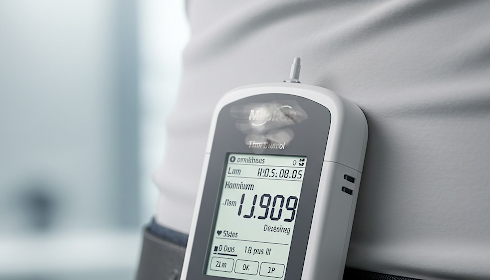
Insulin Pumps Bring Hope for Underprivileged Children with Type 1 Diabetes
In a significant step towards equal healthcare access, 20 disadvantaged youngsters in Mumbai got life-saving insulin pumps through the Type 1 Diabetes Initiative (T1DI), which is led by P. D. Hinduja Hospital and the Hinduja Foundation. These gadgets, together with complete medical support for five years, will assist children with Type 1 Diabetes (T1D) in leading healthier, more stable lives.
Type 1 diabetes is a lifelong condition in which the immune system mistakenly destroys insulin-producing cells in the pancreas. Without insulin, which helps control blood sugar, patients must rely on regular injections or pumps. Managing the condition necessitates round-the-clock monitoring, lifestyle adjustments, and expensive medical equipment.
For low-income families, the cost of care might be prohibitively high. A single insulin pump can cost over ₹3 lakh, not adding ongoing expenses for testing strips, needles, and doctor visits. "Many children in such families suffer complications or even die prematurely due to a lack of basic treatment," said Dr Phulrenu Chauhan, Head of Endocrinology at Hinduja Hospital.
To address this situation, the hospital's effort, initiated in 2019, has already assisted over 400 youngsters. The initiative has committed ₹11 crore for long-term care, with outstanding outcomes. On average, children's HbA1c readings have improved from a dangerous 10.2% to a safer 7-8%. HbA1c is a measure that indicates how well a person's blood sugar has been controlled in the previous 2-3 months. Lowering it dramatically lowers the chance of consequences such as nerve damage, kidney disease, and blindness.
Beyond numbers, the impact on families is extremely personal. "Today's event is a major step in our efforts to assist children and their families in managing this difficult condition," stated Mr Gautam Khanna, CEO of P. D. Hinduja Hospital. "The quality of life of these kids—and even their families—has improved."
Insulin pumps provide more than convenience. Unlike daily injections, these small wearable devices automatically provide insulin throughout the day, resulting in more consistent blood sugar control. "We're ensuring better outcomes and fewer emergencies," Dr Chauhan explained.
What distinguishes this programme is its emphasis on sustainability. Children not only receive free pumps, insulin, and testing, but they also get frequent check-ups, lifestyle counselling, and education. "The initiative is not just about handing over devices—it's about providing long-term, evidence-based care," said Dr Ashish Mendhi, Program Director at the Hinduja Foundation.
Hospitalisation rates among children in the program have decreased by 75%, indicating better disease care and fewer life-threatening incidents.
With plans to reach out to more children in the future years, the effort is emerging as a paradigm for how targeted intervention might overcome the chronic disease care gap in India. It also emphasises the significance of scientific research and conversation when determining public health interventions.
"We remain committed to expanding access and driving new research to shape the future of diabetes care," Mr Khanna added.